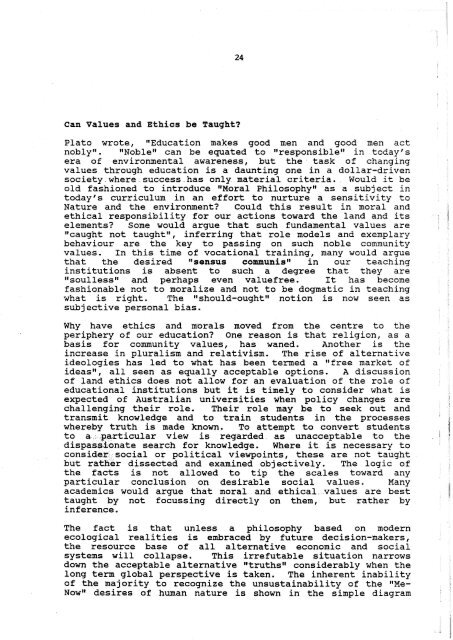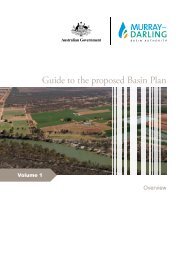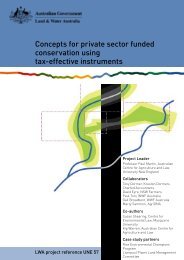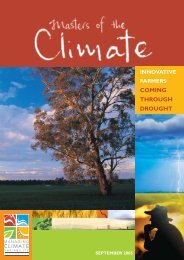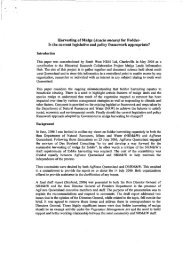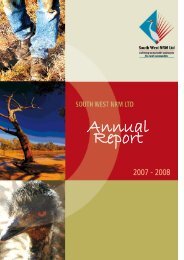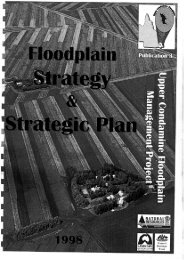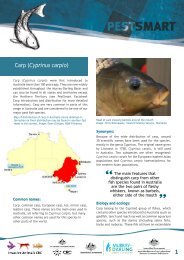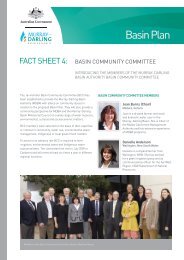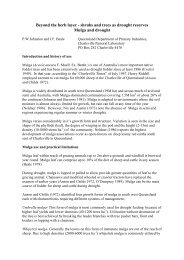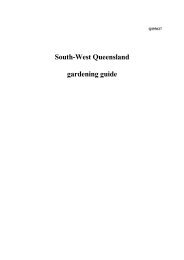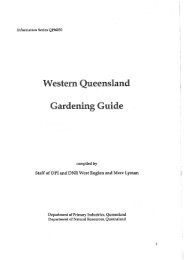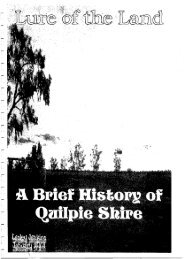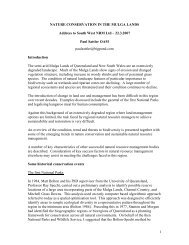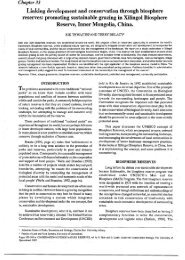soil-conservation-people-religion-and-land.pdf - South West NRM
soil-conservation-people-religion-and-land.pdf - South West NRM
soil-conservation-people-religion-and-land.pdf - South West NRM
You also want an ePaper? Increase the reach of your titles
YUMPU automatically turns print PDFs into web optimized ePapers that Google loves.
Can Values <strong>and</strong> ~thics be Taught?<br />
Plato wrote, "Education makes good men <strong>and</strong> good men act<br />
nobly". v1Noble19 can be equated to flresponsiblevl in today's<br />
era of environmental awareness, but the task of changing<br />
values through education is a daunting one in a dollar-driven<br />
society-where-success.has only material. criteria. Would it be<br />
old fashioned to introduce "Moral Philosophyvw as a subject in<br />
today's curriculum in an effort to nurture a sensitivity to<br />
Nature <strong>and</strong> the environment? Could this result in moral <strong>and</strong><br />
ethical responsibility for our actions toward the l<strong>and</strong> <strong>and</strong> its<br />
elements? Some would argue that such fundamental values are<br />
Itcaught not taught", inferring that role models <strong>and</strong> exemplary<br />
behaviour are the key to passing on such noble community<br />
values. In this time of vocational training, many would argue<br />
that the desired lqsensus communi~~~ in our teaching<br />
institutions is absent to such a degree that they are<br />
ltsoullesslt <strong>and</strong> perhaps even valuef ree. It has become<br />
fashionable not to moralize <strong>and</strong> not to be dogmatic in teaching<br />
what is right. The l'should-oughtll notion is now seen as<br />
subjective personal bias.<br />
Why have ethics <strong>and</strong> morals moved from the centre to the<br />
periphery of our education? One reason is that <strong>religion</strong>, as a<br />
basis for community values, has waned. Another is the<br />
increase in pluralism <strong>and</strong> relativism. The rise of alternative<br />
ideologies has led to what has been termed a "free market of<br />
ideasvt, all seen as equally acceptable options. A discussion<br />
of l<strong>and</strong> ethics does not allow for an evaluation of the role of<br />
educational institutions but it is timely to consider what is<br />
expected of Australian universities when policy changes are<br />
challenging their role. Their role may be to seek out <strong>and</strong><br />
transmit knowledge <strong>and</strong> to train students in the processes<br />
whereby truth is made known. To attempt to convert students<br />
to a particular view is regarded as unacceptable to the<br />
dispassionate search for knowledge. Where it is necessary to<br />
consider social or political viewpoints, these are not taught<br />
but rather dissected <strong>and</strong> examined objectively. The logic of<br />
the facts is not allowed to tip the scales toward any<br />
particular conclusion on desirable social values. Many<br />
academics would argue that moral <strong>and</strong> ethical. values are best<br />
taught by not focussing directly on them, but rather by<br />
inference.<br />
The fact is that unless a philosophy based on modern<br />
ecological realities is embraced by future decision-makers,<br />
the resource base of all alternative economic <strong>and</strong> social<br />
systems will collapse. This irrefutable situation narrows<br />
down the acceptable alternative lltruthslt considerably when the<br />
long term global perspective is taken. The inherent inability<br />
of the majority to recognize the unsustainability of the '@Me-<br />
Now" desires of human nature is shown in the simple diagram


